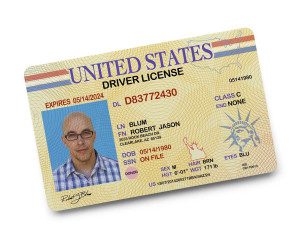Virginia License Suspension Attorney
 If you are convicted of certain offenses in the Commonwealth of Virginia your driver’s license will likely be suspended, either as a judicial (court) suspension or by the Department of Motor Vehicles (DMV). If you have been arrested, the first action to take is to call an experienced Virginia driver’s license suspension lawyer who is familiar with the complex legal system in Virginia’s courts.
If you are convicted of certain offenses in the Commonwealth of Virginia your driver’s license will likely be suspended, either as a judicial (court) suspension or by the Department of Motor Vehicles (DMV). If you have been arrested, the first action to take is to call an experienced Virginia driver’s license suspension lawyer who is familiar with the complex legal system in Virginia’s courts.
If your license has been suspended at any point in Virginia, you will need to reinstate your privilege to get back on track. To reinstate your license in Virginia you may need to pay a reinstatement fee and show proof of citizenship or authorization to be in the United States. For a suspension of one year or more, you must also pass a road skills test, a knowledge test, and a vision test.
Reasons for Suspension in Virginia
The following are some of the reasons your driver’s license may be suspended in Virginia:
- Driving under the influence (DUI) of drugs or alcohol
- Operating a motor vehicle without an ignition interlock device after having been convicted of DUI
- Injuring someone while DUI
- Failing to stop and identify yourself at the scene of an accident where someone was killed or injured
- Involuntary or voluntary manslaughter while driving a motor vehicle
- Involuntary or voluntary manslaughter while driving a motor vehicle while DUI
- Attempting to elude the police
- Committing a drug offense
- Taking a driver’s license test for another person or renewing such a test as another person
- Driving without a valid driver’s license
- Failing to pay for gasoline
- Aggressive or reckless driving
- Driving after your license has been revoked or suspended for a non-DUI offense
- Refusing to take a breath/blood test while charged with DUI of alcohol or drugs
If you fail to pay fines and court costs within 30 days after you are convicted of a traffic or criminal offense, the courts will suspend your driver’s license. You have the option to get on an installment plan to extend the payment period beyond the 30 day mark, but that execution of additional documentation rests with the clerk’s office.
Demerit Points
The Commonwealth of Virginia retains a record of convictions for traffic violations for 12- and 24-month periods and assigns the convictions demerit points (learn more about the point system on the Virginia DMV website). Upon letter notification that you have reached a certain threshold, you must complete a driver improvement clinic within 90 days or your license will be suspended. In addition, there are separate licensing issues for minors. If you are under 18 years old, the second conviction for any traffic violation is an automatic 90-day suspension, the third conviction is revocation for one year (typically until age 18).
Medical Review and Insurance Requirements, Delinquent Child Support
Your driver’s license may be suspended or restricted if the DMV receives a report that you have a physical or mental condition which affects your ability to operate a motor vehicle safely. These conditions include motor skills, vision, judgment and level of consciousness. The DMV may require you to submit a vision and/or physical evaluation completed by a physician, and/or complete a two-part road knowledge test and/or a road skill test.
The DMV requires all drivers to show proof of adequate insurance or pay a $500 uninsured motor vehicle fee at the time of registering your vehicle. If not, your license may be suspended.
If you are more than 90 days late in paying your child support payments or fail to appear in court, comply with a summons, warrant or subpoena with regards to child support payments, your license may be suspended.
Alcohol and Drugs
Drinking and driving or using drugs while behind the wheel can result in serious criminal charges.
The Administrative License Suspension
If a police officer arrests you for suspicion of DUI, he or she will ask you to take a breath test or a blood test. When you were given a license to drive in Virginia, you agreed by implied consent to take one or both of these tests. If you take the breath test and your blood alcohol content (BAC) is over .08, your driver’s license will be suspended automatically for seven days on the first offense; for 60 days, or until you go to trial, whichever comes first for the second offense; and until your trial for the third offense. If convicted, a suspension or revocation will be added to this “administrative” suspension. If you unreasonably refuse the blood or breath test, you will be charged with that offense pursuant to 18.2-268.3 and you may also face the administrative license suspension discussed above.
The court may also suspend your license if you are convicted of:
- Providing alcohol to persons under 21 years old
- Providing alcohol to anyone under court order not to drink
- Caught attempting to use a fake ID.
Contact an experienced Virginia license suspension attorney today for the best strategies to avoid having your license suspended or revoked. Virginia courts take driving privileges very seriously and with the additional DMV penalties looming, it is important to discussing suspension issues with a qualified attorney as soon as possible.






